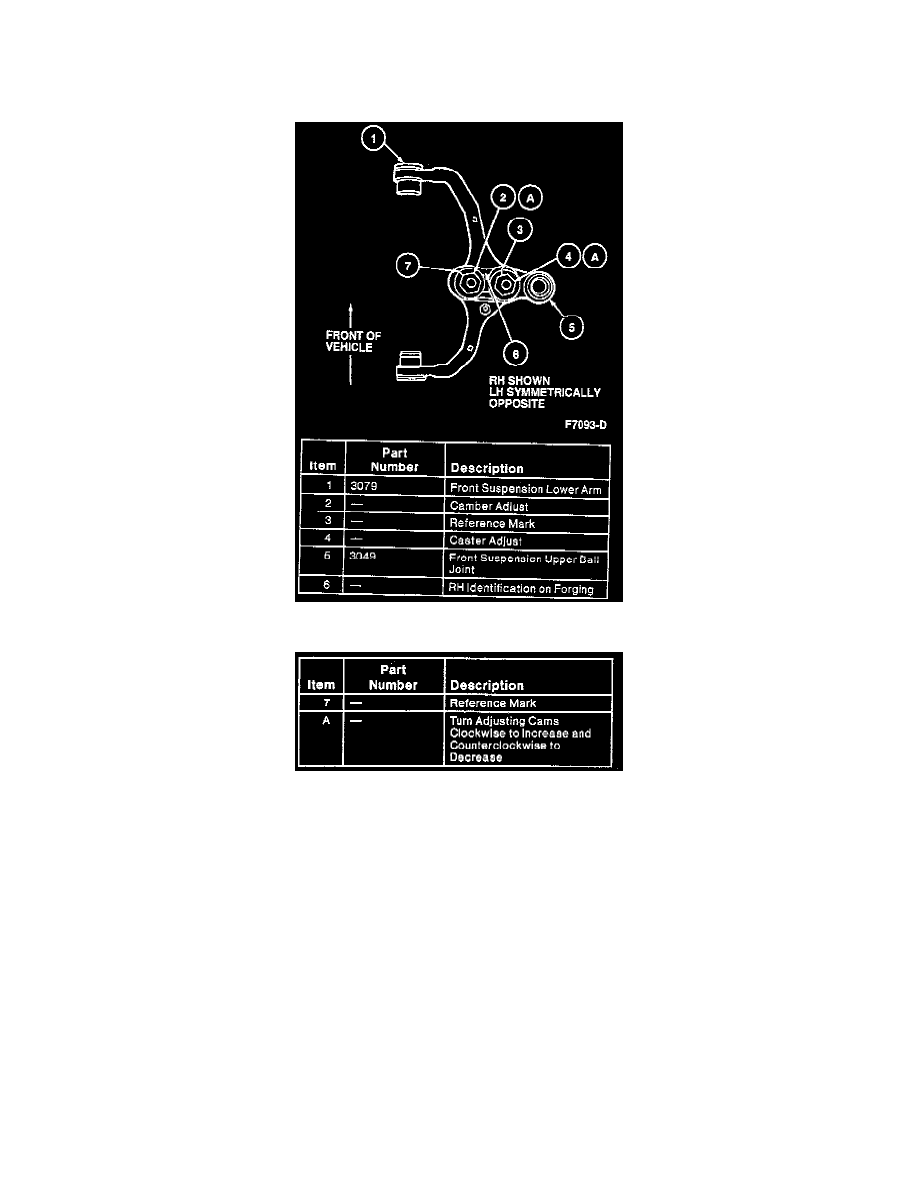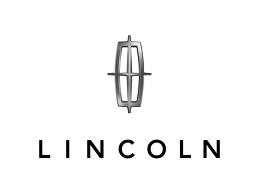Town Car V8-4.6L VIN W (1997)

Alignment: Service and Repair
Caster and Camber
Part 2 Of 2
Part 2 Of 2
Adjusting cams are provided for caster and camber adjustment.
1. Check caster and camber and record the readings.
2. Compare camber and caster readings with nominal specifications on appropriate chart (depending on vehicle) to determine if adjustment is
required to bring vehicle to nominal setting.
Maximum caster difference between wheels (left minus right) to be within -3/4 degree to +3/4 degree with caster set to specification.
Maximum camber difference between wheels (left minus right) to be within -3/4 degree to +3/4 degree with camber set to specification.
NOTE: A vehicle within the minimum to maximum tolerances may require alignment adjustment to the nominal setting (zero) because
side-to-side setting is out of specification and must be corrected.
3. If adjustment is required, loosen two nuts on top of adjusting cams.
4. Turn hex cams as required to obtain desired valve.
5. After proper caster and camber settings have been set, hold each cam and tighten nuts to 148-201 Nm (109-148 ft. lbs.).
6. Check toe-in and steering wheel spoke position and adjust both (as required) at the same time.
Equipment Installation
Equipment used for front-wheel alignment inspection must be accurate. All wheel alignment readings must be performed on an alignment rack level to
